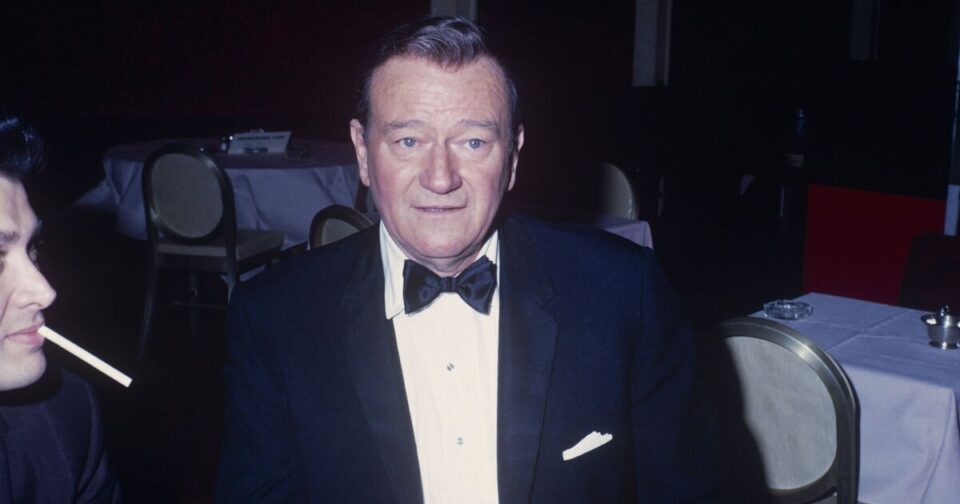Few names in American film history carry as much weight as John Wayne. A towering figure of mid-20th century cinema, Wayne became synonymous with the Western – a genre he helped define across a career that spanned five decades and nearly 180 screen credits.
But what films did John Wayne himself admire? In 1977, he was asked by The People’s Almanac to name his five favourite movies of all time.
A Man for All Seasons (1966)
A Man for All Seasons is a historical drama about Sir Thomas More and his refusal to approve King Henry VIII’s split from the Roman Catholic Church. Directed by Fred Zinnemann, the film stars Paul Scofield as More, alongside Robert Shaw, Orson Welles, and John Hurt in early roles.
The film was both a critical and commercial success, winning six Academy Awards in 1967, including Best Picture, Best Actor for Scofield, and Best Director for Zinnemann. Its screenplay, adapted from Robert Bolt’s stage play, examines the moral complexities of faith, law, and personal conviction.
Gone with the Wind (1939)
Wayne’s second pick is perhaps more predictable. Gone with the Wind remains one of the most well-known – and divisive – films in American history. Directed by Victor Fleming, the film stars Vivien Leigh, Clark Gable, and Hattie McDaniel, and adapts Margaret Mitchell’s sweeping Civil War-era novel into an epic of romance, war, and societal change.
The film won eight Academy Awards, including Best Picture, Best Actress for Leigh, and a historic win for McDaniel, who became the first African American to win an Oscar. When adjusted for inflation, Gone with the Wind is still one of the highest-grossing films of all time.
However, the film has come under significant scrutiny in recent years for its portrayal of slavery and glorification of the antebellum South.
The Four Horsemen of the Apocalypse (1962)
Directed by Vincente Minnelli, The Four Horsemen of the Apocalypse (1962) is a remake of a 1921 silent film and tells a sprawling tale of family conflict across national lines during the rise of fascism in Europe.
Set just before World War II, the plot follows the descendants of an Argentine landowner who end up on opposite sides of the global conflict – one fighting for France, the other aligning with Nazi Germany. Starring Glenn Ford, Ingrid Thulin, and Charles Boyer, the film was praised for its rich visuals, symbolic storytelling, and powerful anti-war message.
The Searchers (1956)
Wayne’s fourth choice is one of his own films: the widely acclaimed The Searchers, directed by John Ford. Frequently cited as one of the greatest American films ever made, the 1956 Western stars Wayne as Ethan Edwards, a former Confederate soldier who embarks on a years-long mission to find his kidnapped niece.
Set against the backdrop of the American frontier, The Searchers delves into themes of racism, vengeance, and obsession. Wayne’s performance is among his most complex, portraying a deeply flawed character whose motivations grow darker with each passing scene.

